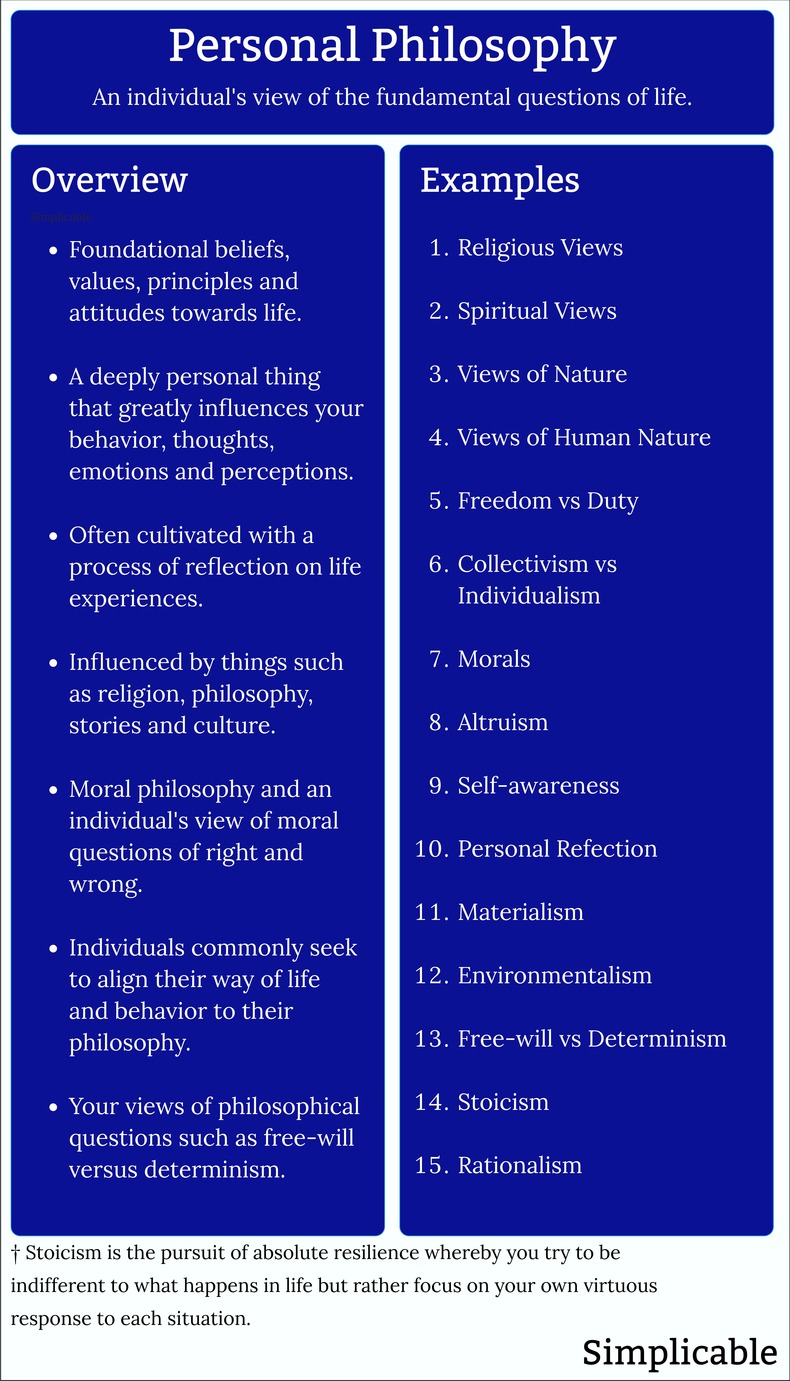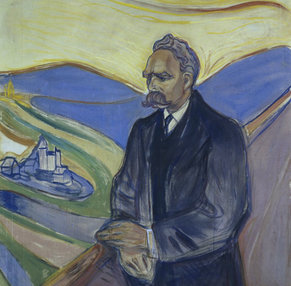Skepticism
A skeptic doubts that anything can be known with certainty as even basic human perception could be a simulation. They refuse to make any judgements of truth and view all such judgements as unverifiable nonsense. In other words, they believe the universe is not ours to understand.Relativism
Relativism is the idea that their are no universal truths such that individuals and cultures are free to define truth. This is a convenient philosophy for winning any argument as you can deny any and all science or tradition in favor of the view that your opinion itself is the only thing that is true. Relativism is the foundation of postmodernism.Materialism
Materialism is the idea that life is completely physical such that all things can be explained in terms of matter and energy.Free Will
Free will is the idea that humans play a role in deciding their intent and actions. This comes up because some materialists view existence as a series of physical cause and effect reactions that make the future predictable. This was a popular view amongst 19th century scientists but modern science such as quantum physics or chaos theory view the world as non-deterministic such that the future is surprisingly random or otherwise open-ended.Idealism
Idealism is the theory that life is mostly intangible such that it is defined by thought. For example, the idea that storytelling tends to create the future.Realism
Realism is the theory that the universe has its own nature that is unaffected by human theories and opinions. This rejects idealism and relativism as it doesn't recognize humans as the creators of truth.Rationalism
Rationalism views rational thought as the source of all valid knowledge. For example, rationalism would suggest that people can understand the universe with techniques such as a thought experiment.Empiricism
Empiricism views measurement as the source of valid knowledge. For example, defining culture in measurable terms such as money or quantifiable survey questions.Pragmatism
Pragmatism is the view that something is true if it is true for practical purposes. For example, the view that traditions have value if people in a culture view them as valuable.Deism
The belief in a supreme being that created the universe. Deism further suggests that the existence of this supreme being can be shown with reason and observation of the universe.Revelation
Revelation is the belief that the existence of a supreme being can be understood by directly communication. For example, the belief that you can communicate through prayer or meditation with a deity.Cynicism
A general distrust of systems, nations, culture, institutions and groups. Cynics advocate a simple life of virtue and connection with nature detached from the constraints and comforts of society.Giri
Giri is a Japanese philosophy that can be translated "duty". It is associated with diligently performing one's role in society and involves elements of loyalty, gratitude and moral debt. Giri calls for prioritizing your duty over your wants and needs.Ninjo
Ninjo is a Japanese concept that can be translated "human feeling." Ninjo often pops up in opposition to giri. According to Japanese philosophy, giri is typically viewed as the more virtuous path. In Japanese films, a father who sacrifices time with his family to meet his obligations at work might be viewed as a hero where Westerner films are more likely to present such a character as a villain. Prioritization of giri vs ninjo is a fundamental element of personal philosophy.Mediocrity
Mediocrity is the idea that the purpose of life is to avoid risk, minimize effort and seek safety, comfort and security by conforming to the expectations of large groups.Will to Power
The idea that the purpose of life is to take risk, grow, spread, seize and become predominant in a self-defined pursuit of self-fulfillment.Karma
Karma is the theory that an individual's intent and actions influence their future. For example, the idea that selfless good deeds are repaid many times over with time.Wabi-Sabi
Wabi-sabi is a Japanese aesthetic of stark imperfection. This stems from a philosophy that calls for humble acceptance and appreciation of the imperfections of life.Shoganai
Shoganai is the Japanese idea that it is futile to pour your energies into things you can't control. For example, if an earthquake destroys your home, it is shoganai. So this would call for you to focus on things you can control such as rebuilding over wallowing in self-pity.Stoicism
Stoicism is an approach to life that calls for an individual to be indifferent to "good" or "bad" luck but rather to concentrate on their own virtuous intent and action whatever should happen.Mono no Aware
Mono no aware is the Japanese philosophy of impermanence that calls for attention to the moment because everything, including people, change from one moment to the next.Summary
A personal philosophy is an individual's view of foundational questions of morals, nature, human nature and the meaning or purpose of life.
| Overview: Personal Philosophy | ||
Type | ||
Definition | An individual's view of the most fundamental questions of life such as the meaning, purpose and nature of life. | |
Not To Be Confused With | Business PhilosophyProfessional Philosophy | |
Related Concepts | ||




































